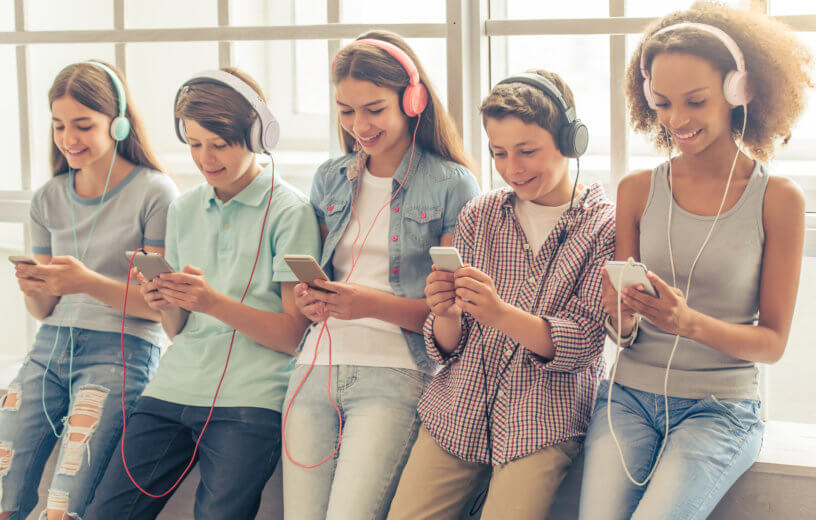IRVINE, Calif. — It is quickly becoming an accepted notion among scientists, physicians, and society alike that spending all day staring at a smartphone or desktop screen isn’t a good idea when it comes to mental health, especially among teenagers. There are seemingly countless news stories and reports these days linking excessive smartphone use to increased bouts of anxiety, depression, and loneliness, among other negative consequences. Surprisingly, a new study conducted at The University of California, Irvine is bucking that trend.
After closely following the smartphone habits of nearly 400 adolescents, researchers say they found little evidence that the use of digital technology leads to poor mental health in children.
“It may be time for adults to stop arguing over whether smartphones and social media are good or bad for teens’ mental health and start figuring out ways to best support them in both their offline and online lives,” comments Candice Odgers, a researcher at UCI, in a statement.
Researchers set out to determine if time spent on digital technology, more specifically smartphones, directly impacted the severity of mental health problems experienced by adolescents. However, they actually found that smartphone use didn’t seem to impact mental health, in both the short and long term.
Representative data was collected on over 2,000 adolescents living in North Carolina. Then, a smaller sample of just under 400 adolescents between the ages of 10-15 filled out an initial survey on their digital technology use in 2015. That same group was then followed up on and closely studied and analyzed for two weeks in 2016-2017. During that 14-day period, each participant reported on their mental health to researchers three times per day, and also reported on their daily use of technology each night.
Across their findings, the research team found almost no links between digital technology and poor mental health. Adolescents who reported the most smartphone and social media use compared to their peers weren’t any more likely to experience mental health problems, even a few years later. Furthermore, even on days in which participants reported increased time spent on their phones and computers, they did not report more pronounced anxiety, depression, etc., on that same day.
Even more confounding, the small associations that researchers did observe were unexpected and not inline with their expectations. For example, participants who used their smartphones and computers for school work most of the time reported more problems with inattention and hyperactivity than participants who were using their phones for social media. Also, teens who reported sending more text messages over the course of the two-week observation period actually reported being happier than teens who didn’t send as many texts.
“Contrary to the common belief that smartphones and social media are damaging adolescents’ mental health, we don’t see much support for the idea that time spent on phones and online is associated with increased risk for mental health problems,” comments Michaeline Jensen, an assistant professor of psychology at the University of North Carolina at Greensboro.
The study is published in Clinical Psychological Science.
